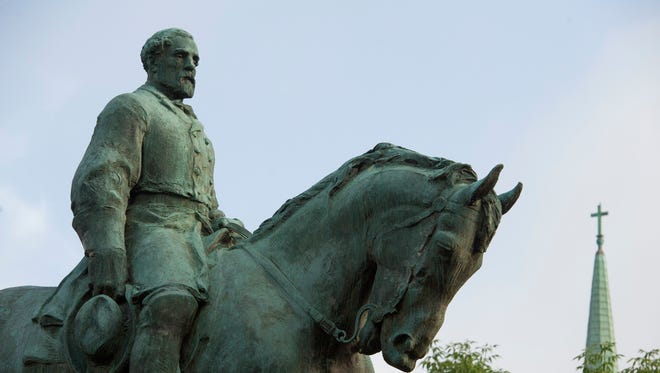It’s not just the Confederate monuments, it’s the holidays

More than 150 years after the Civil War, the Confederacy is still commemorated with statues and even celebrated with holidays in a handful of states in the South.
In 2016, the Southern Poverty Law Center published a list of all things named after or dedicated to the memory of the Confederacy. Aside from taking aim at the 718 monuments across the country, it blasted the six states that still recognize nine Confederate holidays.
The politics of symbolism 50 years after the Civil Rights era makes for strange "holiday" pairings. Like Robert E. Lee, Dr. Martin Luther King Jr. was also born in January. Three states — Alabama and Arkansas and Mississippi —celebrate both Lee and King on the same day.
In Florida, the state statute listing the recognized holidays includes nods to the Confederacy and its figures, like the birthday of Gen. Robert E. Lee on January 19 and Confederate Memorial Day on April 26. June 5, the birthday of Jefferson Davis, president of the Confederate States, also is held as a holiday under the statute.
While state offices remain open on most of these "holidays" in Florida, Alabama goes a step further in honoring Davis' legacy, closing its state offices and courts on his birthday.
But in the wake of the outbreak of violence in Charlottesville, Va., and controversy over President Trump's response to white nationalists and neo-Nazis, there are once again renewed calls to re-evaluate public tributes to the Confederacy.
Andrew Gillum, mayor of Florida's capital city Tallahassee, issued a call Wednesday for the removal of Confederate monuments on state grounds. Now, he's lending his voice in hopes he and others can get the attention of state legislators to reconsider the legal holidays as well.
"We're not going to rewrite history, but we can and should work together to build a better, more just future for every Floridian — which means critically examining the remnants of the Confederacy on our public lands and in our laws," Gillum said.
Read more:
America's 'Confederate infrastructure:' Too big to hide, move or raze
When a bronze Confederate needed to retire, University of Texas found a home
Duke University removes statue of Confederate Gen. Robert E. Lee
Kurt Piehler, associate professor of history at Florida State University, said the debate about holidays and monuments, given how much of the history is forgotten and misinterpreted, is not all negative.
"I am glad people are engaging with history and it’s a public conversation we should have about what these monuments mean,” said Piehler, director of FSU's Institute on World War II and the Human Experience. "The appropriate place for Confederate memorials is in cemeteries. German soldiers are memorialized in cemeteries. Reconciliation is difficult and it’s important.”
